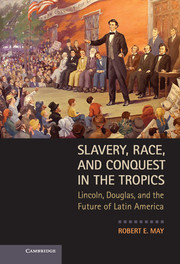Book contents
Introduction
Published online by Cambridge University Press: 05 June 2014
Summary
Did she pay any attention to what the president actually said? On March 4, 1865, Cara Kasson, the wife of a Republican congressman from Iowa, made her way to the Capitol through Washington’s muddy streets, as rain poured down, to witness the second inauguration of Abraham Lincoln. Later, when reporting her impressions of the day to a Des Moines, Iowa, paper, Mrs. Kasson was more effusive about the sun’s appearance as Lincoln took his oath than his inaugural thoughts. Observing that the president delivered “his few clear sentences” modestly, she suggested that the timely breaking out of sunshine might be an omen that God was prepared to let Lincoln lead the nation to final victory in the Civil War.
Perhaps Lincoln’s text sped by her too quickly to be absorbed. A mere 703 words, it was several times briefer than the inaugural in 1857 of his immediate predecessor, James Buchanan. Yet, within it, Lincoln boiled down to a few sentences what had caused the horrific conflict that had already taken hundreds of thousands of American lives. Asserting that everybody understood that “somehow” slavery was the problem, Lincoln explained why it so divided Americans: “To strengthen, perpetuate, and extend” slavery had been the purpose of southern disunionists, he contended, while he and fellow Republicans “claimed no right to do more than to restrict the territorial enlargement of it.” The issue of slavery expansion, in other words, brought on the Civil War, not the actual situation of slaves already in the southern states.
- Type
- Chapter
- Information
- Slavery, Race, and Conquest in the TropicsLincoln, Douglas, and the Future of Latin America, pp. 1 - 4Publisher: Cambridge University PressPrint publication year: 2013



